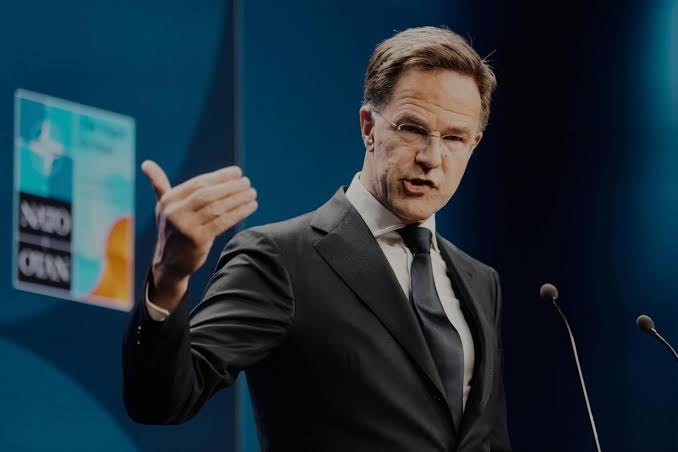Facebook Twitter (X) Instagram Somali Magazine - People's Magazine
World leaders have gathered in The Hague for what German Chancellor Friedrich Merz has hailed as a historic NATO summit, aimed at ensuring peace across Europe for future generations. The summit marks U.S. President Donald Trump’s first appearance at a NATO gathering since 2019, and his influence is already dominating the proceedings. All 32 NATO member states are expected to sign a pledge to raise defense and defense-related spending to 5% of their gross domestic product—more than double the current NATO benchmark of 2%.
Ahead of his arrival, NATO Secretary General Mark Rutte sent Trump a strikingly flattering message that the U.S. president promptly shared online. Praising Trump’s leadership and bold moves in Iran, Rutte wrote, “You are flying into another big success in The Hague this evening… your decisive action in Iran was truly extraordinary.” When asked if he was embarrassed that the message went public, Rutte insisted it was no issue, claiming there was nothing sensitive in it.
Despite the summit’s ambitious defense goals, many nations are far from hitting them. Only a handful of countries currently spend even 3% of GDP on defense. Germany approved a new budget on Tuesday to gradually meet the 3.5% core defense spending target by 2029, with over €150 billion to be spent by then. Chancellor Merz stressed that the increase is driven by Europe’s own security needs, not just pressure from Washington, stating, “We’re not doing this as a favor to the U.S. president.”
Trump’s return to the NATO stage has pushed the alliance to shape the summit around his preferences. The traditional multi-day agenda has been cut down to a short dinner and a brief three-hour session. Still, the symbolic weight of this meeting is substantial, especially as the alliance faces ongoing challenges from Russia’s war in Ukraine and internal divisions over defense budgets.
Russia’s latest missile strikes on Ukraine added urgency to the summit’s tone. Nineteen people were killed in attacks on the cities of Dnipro and Sumy, including a child. Ukrainian President Volodymyr Zelensky has also arrived in The Hague and is expected to meet Trump during the event. Their relationship has been strained, with a tense February meeting at the White House followed by a more positive exchange at the Vatican in April.
NATO members are scrambling to show unity despite disagreements. Spain’s Prime Minister Pedro Sánchez has called for an exemption from the 5% spending requirement, arguing it would be politically unworkable and economically damaging at home. Spain currently spends just 1.3% of GDP on defense. Belgium and Slovakia also expressed interest in exemptions, casting doubt on whether Rutte’s vision of unity can hold. Nevertheless, all 32 countries are still expected to sign the joint statement endorsing the 5% goal.
The breakdown of the new commitment includes 3.5% for core defense spending and 1.5% for broader “defense-related” investments, such as cybersecurity and infrastructure. While the broader category offers flexibility, reaching even the 3.5% baseline will require a major financial shift for most NATO allies.
UK Prime Minister Sir Keir Starmer pledged to meet the 5% threshold by 2035, committing to spend 2.6% of GDP on core defense within two years, with the remaining 1.5% allocated to related projects. As leaders strategize behind closed doors, Trump’s shadow looms large, particularly with Rutte’s public praise and the high-stakes backdrop of Iran and Ukraine.
Security has been ramped up across The Hague, and disruptions to train travel from nearby Schiphol Airport have raised suspicions of sabotage. Dutch Security Minister David Van Weel stated that sabotage could not be ruled out, saying “It could be an activist group, it could be another country.”
Despite the tensions and domestic disagreements, the summit is poised to send a strong message about NATO’s evolving posture. Whether this gathering marks a turning point for NATO—or a spotlight moment for Trump—remains to be seen.

